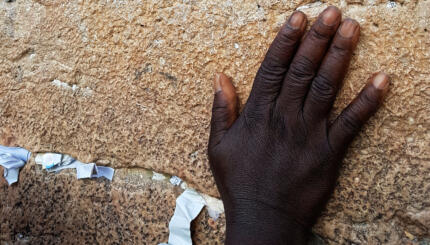This article originally appeared in the Baltimore Jewish Times. Reprinted with permission from JewishFamily.com.
Planning what should be a joyous occasion when parents are divorced can be no laughing matter. “If I have to make one point, I’d make this in big, bold letters,” says child psychologist Dr. Richard Ottenstein. “It’s that this is a special occasion for the child.” It’s important that both parents support their child. “Be flexible,” he advises, “and set your differences aside so that you can set up the system in the way that works best for everyone involved.”
In addition to the nervousness felt at being able to competently chant their Torah portion, teenagers often feel an overwhelming sense of anxiety regarding their parents’ ability to “behave themselves” in public.

To make this special occasion a joyous one — and as stress-free as possible — for all concerned, follow these suggestions:
– Recognize that this simcha (joyous event) belongs to your child. All planning needs to be made in the very best interests of the child.
– Rise above your differences and remember your child loves both of you. Do not put him or her in a position of choosing.
READ: Why I’m Dreading My Son’s Bar Mitzvah
– You, as parents, may experience intense feelings of sadness or anger as you plan this event; do not use your child as a confidante. He or she is too emotionally involved. Reach out to close friends or family or seek professional support.
– Involve your child in the planning; take his or her ideas into consideration.
– When deciding upon the giving of synagogue honors, do so with your child’s interests in mind. Do not make your decision based upon legal or emotional criteria. Ask your rabbi for help.
READ: My Ex-Husband Died While Planning My Son’s Bar Mitzvah
– Above all, be a mensch (kind and generous person) and behave in a way that reflects the traits you want your son or daughter to emulate. Remember, you’re in charge of yourself.
– Create a day of true simcha (joy) as a gift of love to your family, your child, and yourself.
Rabbi Daniel Weiner of Baltimore Hebrew Congregation. “The overriding point I try to get across to divorced parents who are acting in less than mature ways is, ‘This is the child’s day.'”
“Sometimes I have to be very blunt about it,” continues Weiner, “but there are times when parents really need to be straightened out.”
Weiner reminds parents that their child has ties to each of them and needs to feel that both parents are invested in this occasion, which has both symbolic and public meaning.
“It’s important in this situation,” says Weiner, “for both parents to have the proper perspective. The essence of a bar or bat mitzvah is the coming of age of the child, his or her debut as a Jewish adult, and the parents play an integral role in that debut…they are indispensable.”
bat mitzvah
Pronounced: baht MITZ-vuh, also bahs MITZ-vuh and baht meetz-VAH, Origin: Hebrew, Jewish rite of passage for a girl, observed at age 12 or 13.
mitzvah
Pronounced: MITZ-vuh or meetz-VAH, Origin: Hebrew, commandment, also used to mean good deed.
simcha
Pronounced: SIM-khuh (short i), Origin: Hebrew, joyous occasion.
Torah
Pronunced: TORE-uh, Origin: Hebrew, the Five Books of Moses.


